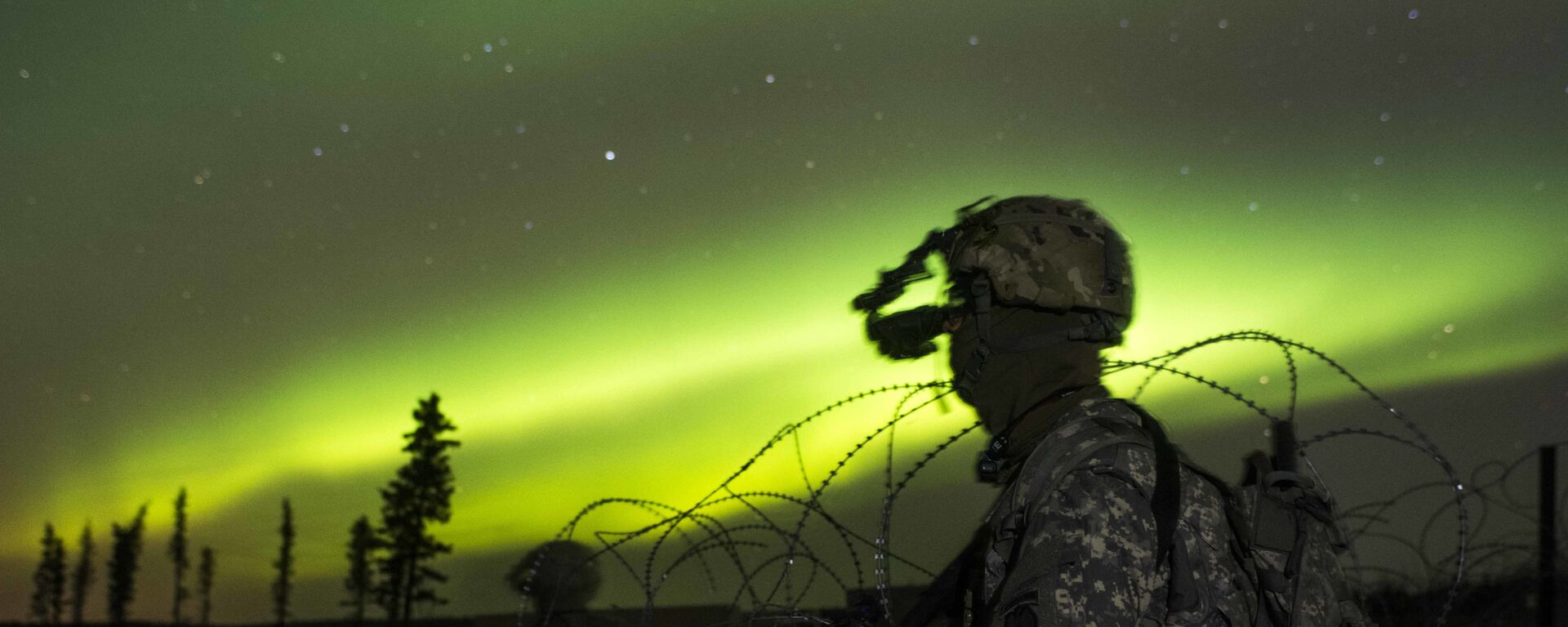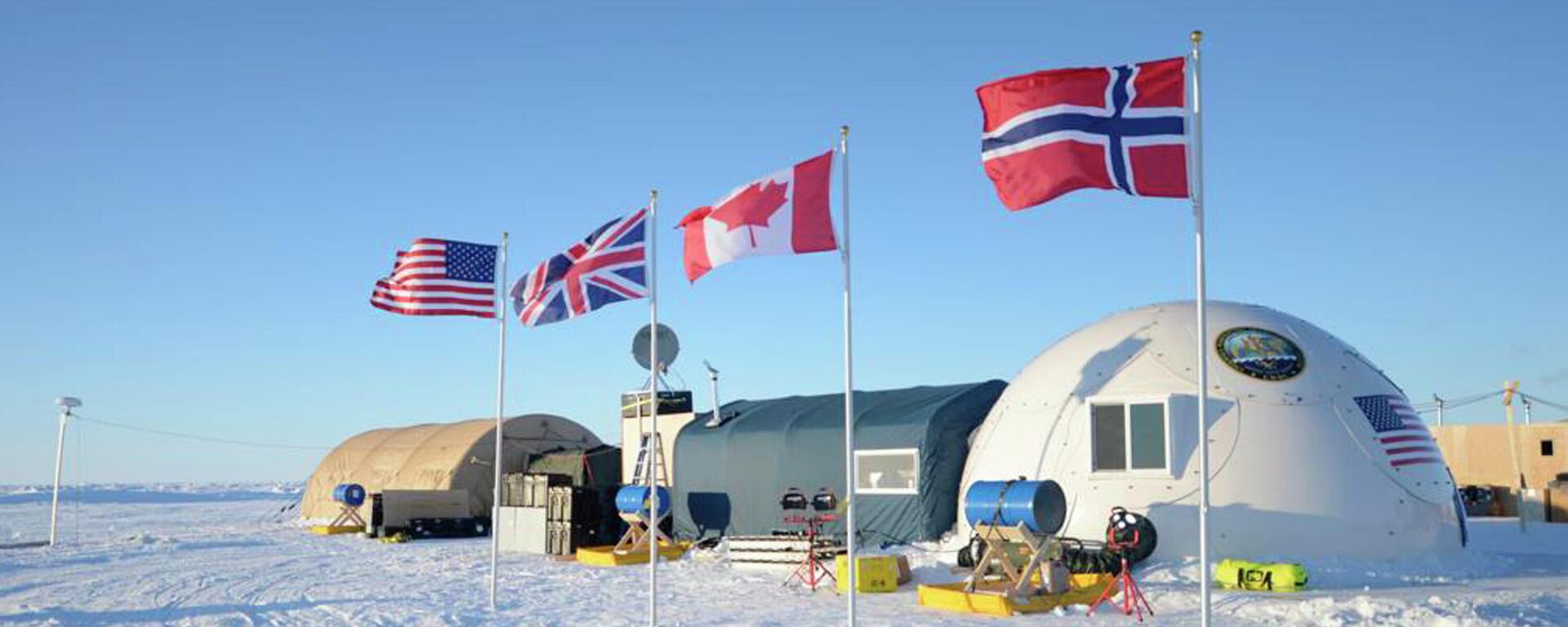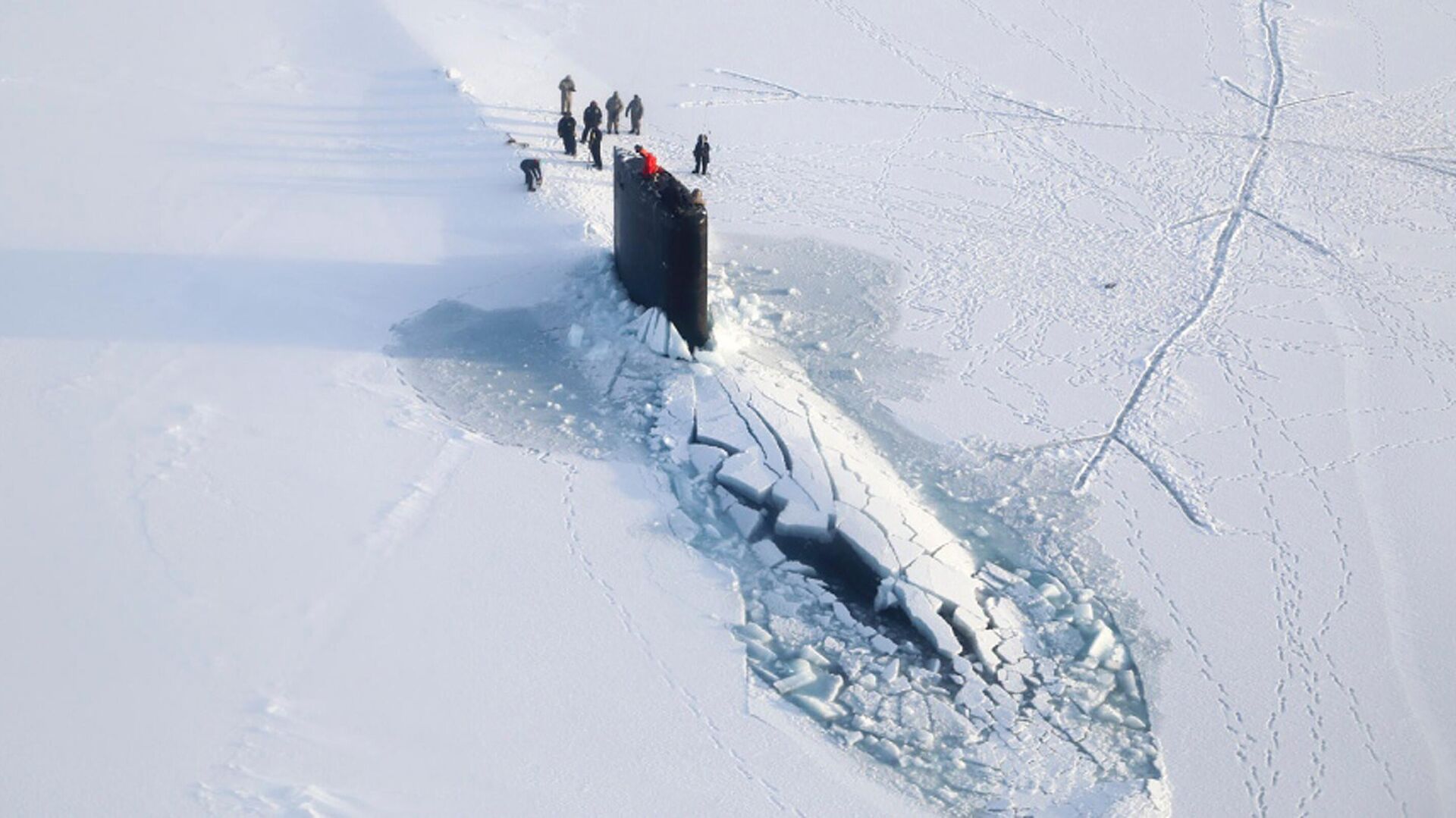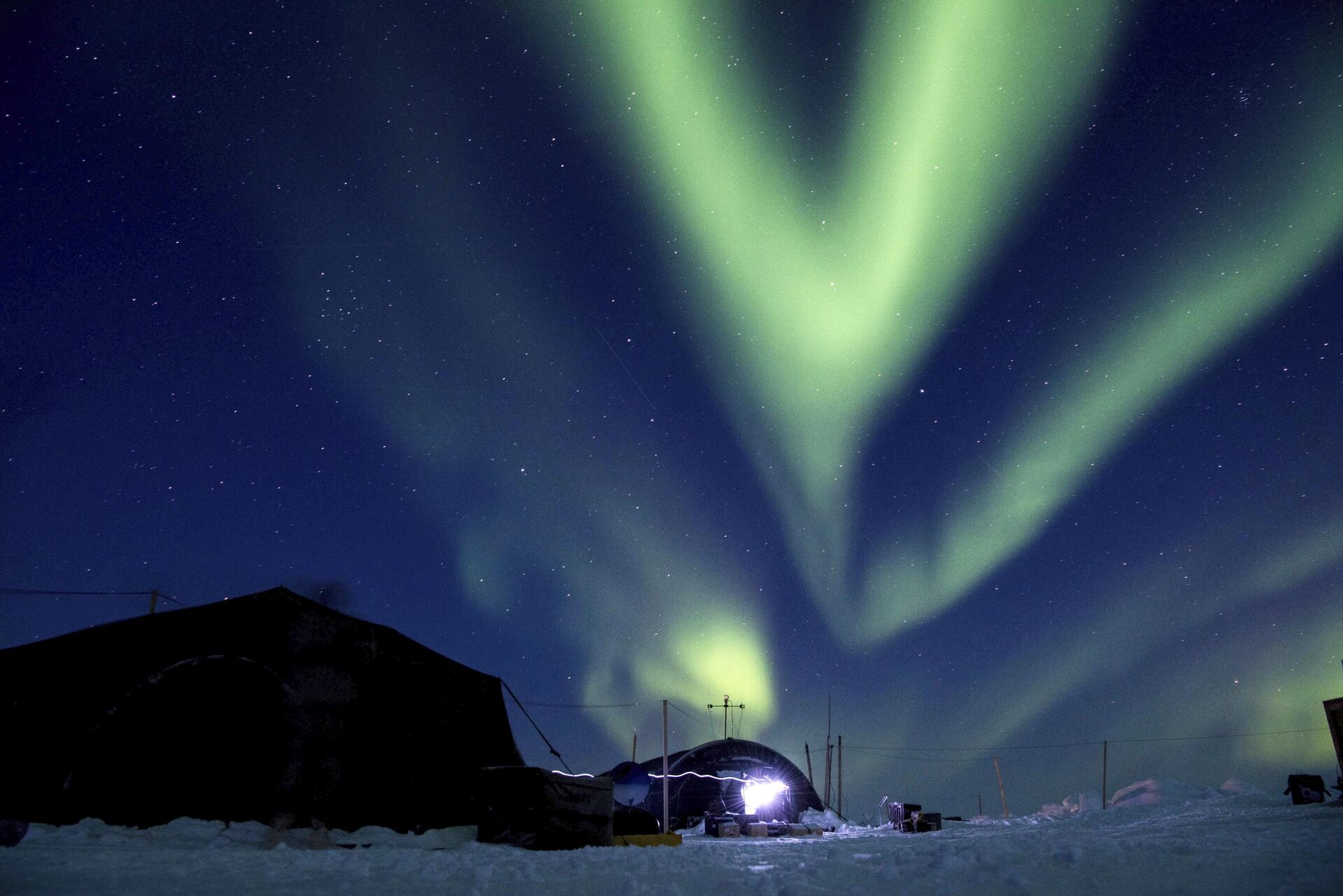https://sputnikglobe.com/20240328/hypocritical-us-shelf-claims-risk-sparking-conflicts-in-arctic-1117599574.html
‘Hypocritical’ US Shelf Claims Risk 'Sparking Conflicts' in Arctic
‘Hypocritical’ US Shelf Claims Risk 'Sparking Conflicts' in Arctic
Sputnik International
Its “very hypocritical” of the US to demand adherence to international law while not following other international regulations when it suits them, Mikael Valtersson told Sputnik.
2024-03-28T10:23+0000
2024-03-28T10:23+0000
2024-03-28T17:02+0000
analysis
environmental control system (ecs)
us
arctic
continental shelf
united nations commission on the limits of the continental shelf
https://cdn1.img.sputnikglobe.com/img/07e8/03/1c/1117600094_72:0:2929:1607_1920x0_80_0_0_e80427cc39c8c035ce0ec3c9b2e15095.jpg
It is “very hypocritical” of the US to demand adherence to international law while not following other international regulations when it suits them, Mikael Valtersson, former air defense officer in the Swedish Armed Forces, told Sputnik.This is especially true “when the matter concerns a practical enlargement of US territory,” the former Sweden Democrat politician added.He added that the "US behavior without acceptance of any international considerations or decisions by the Commission on the Limits of the Continental Shelf makes US complaints on other breaches towards international law much weaker."Moscow sent a demarche to Washington after the US unilaterally secured rights to the seafloor in seven of its regions, the Foreign Ministry said on March 25. According to the ministry, Russia said that it did not recognize the changes in the US ECS (extended continental shelf) during an ongoing session of the International Seabed Authority in Jamaica."The US' unilateral steps do not comply with the rules and procedures established by international law […] A corresponding demarche was sent to the American side via a bilateral line in past," the ministry said.As the US is not a party to the United Nations Convention on the Law of the Sea (UNCLOS), it cannot petition the Commission on the Limits of the Continental Shelf to validate its exclusive maritime claims to the area. Accordingly, the US government has resorted to making unilateral claims, with potential disputes with other states resolved on an ad-hoc basis.Clarifying the essence of Article 76, which the US is citing to support its claim to the extended ECS, Mikael Valtersson told Sputnik:“According to Article 76 of the UNCLOS, coastal states can have an extended continental shelf beyond the 200 nautical miles limit that defines the continental shelf of coastal states. Every coastal state has the right to an exclusive economic zone (EEZ) 200 nautical miles out from the coastal baseline of the coastal state, even if the continental shelf doesn't reach 200 nautical miles. Beyond the EEZ, coastal states can have an extended continental shelf if there really is a physical continental shelf stretching beyond. However, this ECS can't go beyond 350 nautical miles from the coastal baseline, even if the physical continental shelf continues beyond 350 nautical miles.”The analyst specified that in the case of the EEZ, the coastal state controls both the sea bottom and the sea above, while the ECS extends its jurisdiction only to the sea bottom. Over the past decades, the US has been conducting oceanographic research into the outer limits of its continental shelf to prove that the physical part of it stretches beyond 200 nautical miles.Furthermore, by bypassing the Commission on the Limits of the Continental Shelf, the US "undermines the established international process, thereby raising doubts about the credibility and acceptability of its extended continental shelf limits,” Hong Nong underscored. She added that the nature of the legal framework governing the determination of extended continental shelf boundaries "highlights the crucial role of the CLCS as a credible institution tasked with evaluating the validity of such claims.”It should be noted that both Russia and China are parties to UNCLOS, and have repeatedly criticized the US for “selectively interpreting arguments and stretching interpretations in a manner that disrupts the internationally accepted order,” the expert noted.While the United States hypocritically censures China’s policy in the South China Sea, and challenges Russia’s legal claim over the Northern Sea Route, its own actions “may create confusion within the international community regarding the role of UNCLOS and other customary international law,” Hong Nong stated, pointing out:While one can anticipate criticism of the US claims to an ECS in the Arctic, Washington’s allies “will probably not act against US interests if it can show compelling proof that they have a physical continental shelf extending up to 350 nautical miles. The US will set a fait accompli and on its own decide its ESC,” Mikael Valtersson added.“This behavior [by the US] will probably lead to less adherence to international laws and regulations by other nations, and risk leading to heightened tensions and even conflicts between coastal states. We all remember the Cod War between Iceland and the United Kingdom in the 1970s, when Iceland singlehandedly adopted an EEZ stretching 200 nautical miles from its coast, but the UK refused to accept that decision,” Valtersson recalled.However, the defense expert noted that the risk of practical confrontation in the Arctic between Russia and the US “is probably low, since the ECS lies close to the US and far from Russia.”
https://sputnikglobe.com/20240325/russia-sends-demarche-to-us-over-extension-of-continental-shelf-1117538768.html
https://sputnikglobe.com/20231224/russia-lambasts-us-unacceptable-claims-to-arctic-shelf-1115789768.html
https://sputnikglobe.com/20231225/bypassing-unclos-why-us-extended-continental-shelf-claims-are-tricky-1115807227.html
arctic
Sputnik International
feedback@sputniknews.com
+74956456601
MIA „Rossiya Segodnya“
2024
News
en_EN
Sputnik International
feedback@sputniknews.com
+74956456601
MIA „Rossiya Segodnya“
Sputnik International
feedback@sputniknews.com
+74956456601
MIA „Rossiya Segodnya“
why has the us extended its continental shelf claims in the arctic, what is the continental shelf, russia demarche, continental shelf, russia demarche us, us continental shelf,
why has the us extended its continental shelf claims in the arctic, what is the continental shelf, russia demarche, continental shelf, russia demarche us, us continental shelf,
‘Hypocritical’ US Shelf Claims Risk 'Sparking Conflicts' in Arctic
10:23 GMT 28.03.2024 (Updated: 17:02 GMT 28.03.2024) Russia has sent a demarche to the United States over its decision to unilaterally extend its continental shelf, the Foreign Ministry said on Monday. "The US' unilateral steps do not comply with the rules and procedures established by international law," the ministry stated.
It is “very hypocritical” of the US to demand adherence to international law while not following other international regulations when it suits them, Mikael Valtersson, former air defense officer in the Swedish Armed Forces, told Sputnik.
This is especially true “when the matter concerns a practical enlargement of US territory,” the former Sweden Democrat politician added.
“The US often talk about the rules-based order or international law, but avoid signing international agreements to keep their options open; and not being bound by the United Nations Convention on the Law of the Sea they therefore consider themselves not obligated to abide by decisions from the Commission on the Limits of the Continental Shelf,” Valtersson said.
He added that the "US behavior without acceptance of any international considerations or decisions by the Commission on the Limits of the Continental Shelf makes US complaints on other breaches towards international law much weaker."
Moscow sent a demarche to Washington after the US unilaterally secured rights to the seafloor in seven of its regions, the Foreign Ministry said on March 25. According to the ministry, Russia said that it did not recognize the changes in the US ECS (extended continental shelf) during an ongoing session of the International Seabed Authority in Jamaica.
"The US'
unilateral steps do not comply with the rules and procedures established by international law […] A corresponding demarche was sent to the American side via a bilateral line in past," the ministry said.
It took just one stroke of a pen on December 19, 2023, for the Biden administration to release updated official coordinates of the nation's extended continental shelf claims beyond 200 nautical miles from the coast in the Arctic, Atlantic (East Coast), Bering Sea, Pacific (West Coast), Mariana Islands, and two areas in the Gulf of Mexico. The ECS is not expected to create any territorial disputes with Russia, but will overlap with Canada, The Bahamas, and Japan, according to the US State Department.
As the US is not a party to the United Nations Convention on the Law of the Sea (UNCLOS), it cannot petition the Commission on the Limits of the Continental Shelf to validate its exclusive maritime claims to the area. Accordingly, the US government has resorted to making unilateral claims, with potential disputes with other states resolved on an ad-hoc basis.
Clarifying the essence of Article 76, which the US is citing to support its claim to the extended ECS, Mikael Valtersson told Sputnik:
“According to Article 76 of the UNCLOS, coastal states can have an extended continental shelf beyond the 200 nautical miles limit that defines the continental shelf of coastal states. Every coastal state has the right to an exclusive economic zone (EEZ) 200 nautical miles out from the coastal baseline of the coastal state, even if the continental shelf doesn't reach 200 nautical miles. Beyond the EEZ, coastal states can have an extended continental shelf if there really is a physical continental shelf stretching beyond. However, this ECS can't go beyond 350 nautical miles from the coastal baseline, even if the physical continental shelf continues beyond 350 nautical miles.”
The analyst specified that in the case of the EEZ, the coastal state controls both the sea bottom and the sea above, while the ECS extends its jurisdiction only to the sea bottom. Over the past decades, the US has been conducting oceanographic research into the outer limits of its continental shelf to prove that the physical part of it stretches beyond 200 nautical miles.
“Despite ongoing efforts to gather scientific evidence to support future claims along its Atlantic, Gulf, and Alaskan coastlines, the United States’ failure to ratify UNCLOS thus bars its involvement in the CLCS [Commission on the Limits of the Continental Shelf] proceedings. Consequently, this prohibits the US from submitting claims for sovereign rights over resources in the outer continental shelf. The United States also compromises its ability to take part in negotiations regarding the claims of other nations without [being a] member state of UNCLOS,” Hong Nong, an expert in international law and maritime settlements, executive director and senior fellow at the Institute for China-America Studies, told Sputnik.
Furthermore, by bypassing the Commission on the Limits of the Continental Shelf, the US "undermines the established international process, thereby raising doubts about the credibility and acceptability of its extended continental shelf limits,” Hong Nong underscored. She added that the nature of the legal framework governing the determination of extended continental shelf boundaries "highlights the crucial role of the CLCS as a credible institution tasked with evaluating the validity of such claims.”
It should be noted that both Russia and China are parties to UNCLOS, and have repeatedly criticized the US for “selectively interpreting arguments and stretching interpretations in a manner that disrupts the internationally accepted order,” the expert noted.
While the United States hypocritically censures China’s policy in the
South China Sea, and challenges Russia’s legal claim over the
Northern Sea Route, its own actions “
may create confusion within the international community regarding the role of UNCLOS and other customary international law,” Hong Nong stated, pointing out:
“A unified response from the international community urging the US to adhere to established norms would reaffirm the importance of UNCLOS-based institutions like the CLCS in maintaining order in the complex realm of ocean governance.”
While one can anticipate criticism of the US claims to an ECS in the Arctic, Washington’s allies “will probably not act against US interests if it can show compelling proof that they have a physical continental shelf extending up to 350 nautical miles. The US will set a fait accompli and on its own decide its ESC,” Mikael Valtersson added.

24 December 2023, 18:57 GMT
“This behavior [by the US] will probably lead to less adherence to international laws and regulations by other nations, and risk leading to heightened tensions and even conflicts between coastal states. We all remember the Cod War between Iceland and the United Kingdom in the 1970s, when Iceland singlehandedly adopted an EEZ stretching 200 nautical miles from its coast, but the UK refused to accept that decision,” Valtersson recalled.
However, the defense expert noted that the risk of practical confrontation in the Arctic between Russia and the US “is probably low, since the ECS lies close to the US and far from Russia.”
"The US behavior will make relations worse as Russia reacts to US hypocrisy. This might also strengthen Russia diplomatically, as it can show obvious double standards in US behavior and demands in international relations,” Mikael Valtersson said.

25 December 2023, 16:25 GMT






